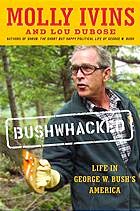Biblio
by Abrahm Lustgarten, ProPublica - April 7, 2010.
Series: Buried Secrets: Gas Drilling's Environmental Threat.
A federal study of hydraulic fracturing set to begin this spring is expected to provide the most expansive look yet at how the natural gas drilling process can affect drinking water supplies, according to interviews with EPA officials and a set of documents outlining the scope of the project.
The research will take a substantial step beyond previous studies and focus on how a broad range of ancillary activity – not just the act of injecting fluids under pressure – may affect drinking water quality.
The oil and gas industry strongly opposes this new approach. The agency’s intended research "goes well beyond relationships between hydraulic fracturing and drinking water," said Lee Fuller, vice president of government affairs for the Independent Petroleum Association of America in comments (PDF) he submitted to the Environmental Protection Agency.
See 22 page Powerpoint, Hydraulic Fracturing Applicability of the Safe Drinking Water Act and Clean Water Act Science Advisory Board Discussion.(2010).
Bruce Baizel. Testimony presented to the Committee on Environmental Protection, James F. Gennaro, Chair, Council of the City of New York, September 10, 2008. Earthworks Publications. Durango, CO.
"My testimony will first address the three main risks to water posed by gas development: well drilling and production, hydraulic fracturing and transportation of fluids to and from the wellsite. I will then briefly describe some specific incidents that illustrate these risks in a number of different states. Then, I will briefly discuss the current New York regulations most applicable to the risks associated with gas development. Finally, I will present some of the approaches that other municipalities and states have developed to try to address these risks."
Bruce Baizel is Senior Staff Attorney for the The Oil and Gas Accountability Project, a program of Earthworks, P.O. Box 1102, Durango, Colorado 81302.
See: Lustgarten (2009) "Buried Secrets: Gas Drilling’s Environmental Threat - ProPublica"
Molly Ivins has written about how the EPA was virtually dismantled as the Bush-Cheney administration handed over the role of oil and gas regulation to the oil and gas industry. While Governor of Texas, Bush allowed Texas industry to voluntarily comply with Federal Clean Air Regulations. Of the hundreds of Texas companies that might have volunteered, according to Ivins, only three did.
Bushwhacked by Molly ivins offers a critique of the presidency of George W. Bush, describing how the same flawed policies he used to govern Texas have affected health and safety standards, the economy, and the environment.
Paul Krugman. Strictly Business. Bushwhacked: Life in George W. Bush’s America Book Review. The New York Review of Books. November 20, 2003.
Chapter 9 of Bushwhacked, by Molly Ivins and Lou Dubose, entitled “Dick, Dubya, and Wyoming Methane,” tells you all you need to know about the Bush Interior Department.
We learn, in particular, that J. Steven Griles, the deputy secretary—and probably the real power in the department—has spent his career shuttling back and forth between being a government official and lobbying for the extractive industries.
And he has never worried much about ethical niceties—little things like recusing himself from decisions that affect his former clients. Moreover, Griles isn’t likely to be disciplined, even when he brazenly supports industry interests over the judgments of government experts.
After all, just about every other senior official at Interior, including Secretary Gale Norton, has a similar résumé. So it’s a very good bet that the new rules on mining-waste disposal don’t reflect a careful economic analysis of the pros and cons.
See: Ed Swartz: The Grass Isn't Growing
See: Stripping the West, a NOW Converstion with Bill Moyers.
See C-Span Book TV Oct. 2, 2004. Bushwacked: Life in George W. Bush's America. Read Chapter: "Dick, Dubya, and Wyoming Methane." (152)
See: U.S. Environmental Protection Agency (EPA): Hydraulic Fracturing Study (2010-2012)
- « first
- ‹ previous
- 1
- 2
- 3










